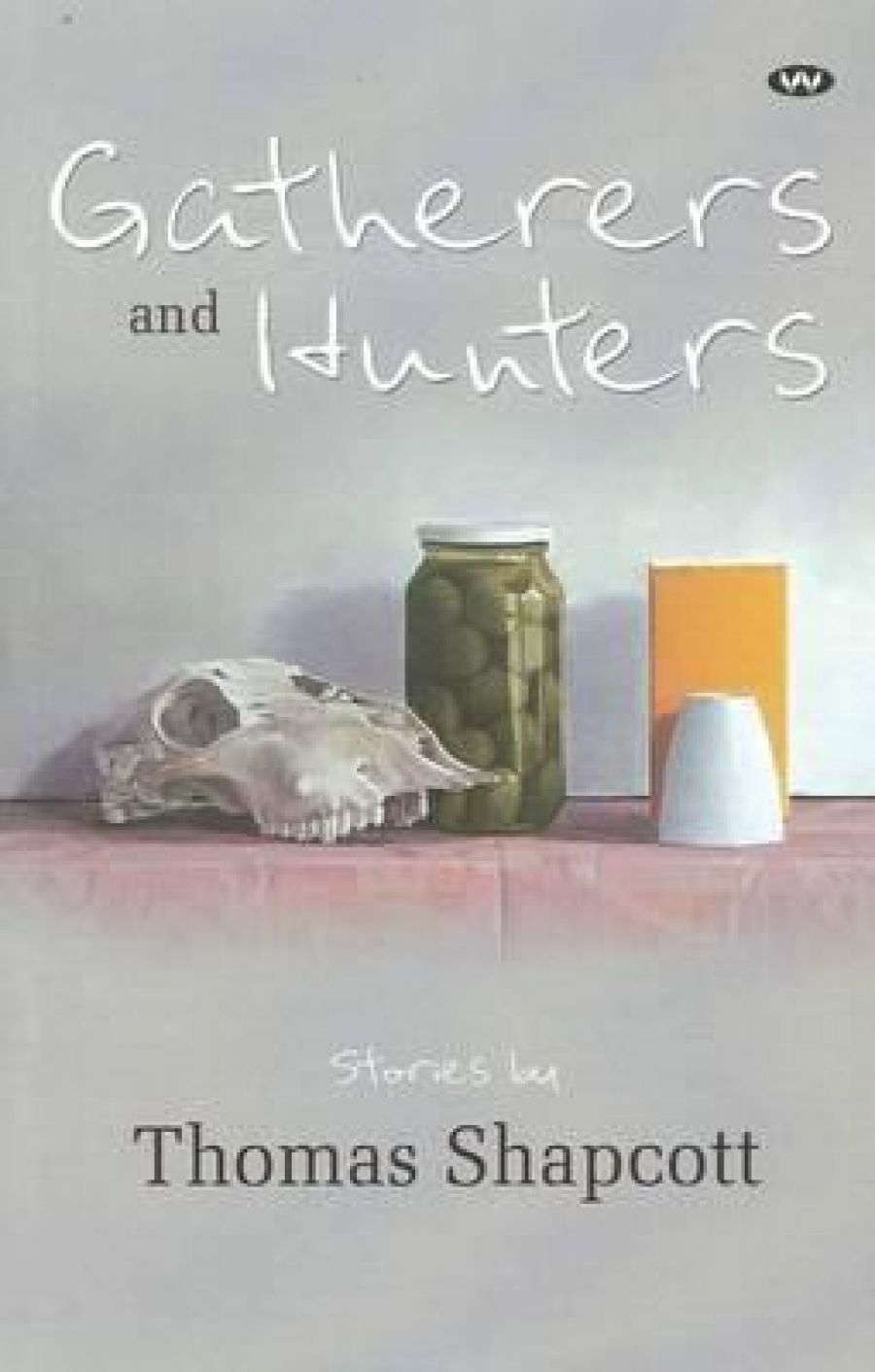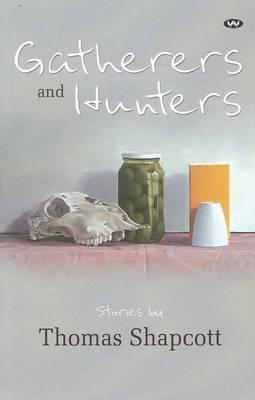
- Free Article: No
- Contents Category: Fiction
- Review Article: Yes
- Article Title: Never ending
- Online Only: No
- Custom Highlight Text:
Tom Shapcott’s most recent volume collects nine short stories and one novella from 1997 to 2005, the period during which he was the inaugural Professor of Creative Writing at the University of Adelaide. Of his thirty-two volumes, eleven are novels, three are collections of short stories, and eighteen are books of poetry. Tom has received the Patrick White Prize, Senior Fellowships from the Australia Council and an Order of Australia. He has been Director of the Literature Board of the Australia Council, Executive Director of the National Book Council and a member of the Adelaide Festival Writers’ Week Committee. Does the man never sleep?
- Book 1 Title: Gatherers and Hunters
- Book 1 Biblio: Wakefield Press, $22.95 pb, 206 pp
- Book 1 Cover Small (400 x 600):

Principal among the endearing qualities of the short story is its modesty. Modesty of scope and of gesture. Stories by writers as different as Anton Chekhov and Raymond Carver, James Joyce and Gillian Mears, even such radicals as Flannery O’Connor and Donald Barthelme, share in this generic modesty. The scope of the short story is often domestic or small-town; ‘Our Town’, in fact.
In his modest way, Shapcott traces the socio-cultural history of Australia in recent decades, often locating his paradigms in rural landscapes or country towns. Consider the stories ‘Bank Closure’, ‘Pristina’ and ‘Red Hat’. These texts dramatise waves of migrants, the ‘reffos’ who made modern Australia and the resentments they provoked in the dominant population. ‘Pristina’ tabulates the changes and tensions in a country town as it is transformed by the successes of Albanian Muslims. Interestingly, the narration of this story is allotted to what we might call a ‘liberal’ – ‘After all, they’re neighbours, not enemies’. The adequacy of liberalism as a political position, albeit an unformulated one, is examined.
Look, I said, if it’s the mosque, or religion, or whatever, forget it. They keep to themselves, and there’s even the Mormons at the other end of town, up on the hill.
When the Yanks came through with the McDonalds franchise and the Pizza Place, there were a few settled in this area, they were the ones to start the new fashion for toy farms and avocado or pecan nut plantations for their income tax. So check up on them Mormons, and the Christadelphians and the Lutherans – lots of those further down the valley, I reminded him.
But liberalism is ineffective against the development of a ‘Law and Order squad’, and even the narrator fails to remain liberal when he thinks of the Irish.
The stories do not stay in country towns. They venture not only to cities (see Flinders Street Station in ‘Furry Animals’) but also abroad, in ‘Lubljana’, for instance. The narrative position of many of the stories is indicated in ‘Turkish Coffee’.
It is funny how the mind censors many things, how the past remodels itself in accordance with present predilections. It is as if we take what we will, or what we remember, out of a grab bag of memories with all the skill of a juggler, whose very art is not only precision, but deception. Everything must appear to be more difficult than it is. Everything must appear easier, almost a gift. Everything is on the surface. Everything is hidden.
If ‘everything is hidden’, then perhaps the role of the reader is that of diviner, an uncoverer of secrets, a fortune-teller, like the one who plays such an important role in ‘Turkish Coffee’. Yet perhaps discoveries are more telling when a narrator, or speaker, makes them about himself or herself. The narrator of ‘Sunshine Beach’, involved in the drama of the punishment for age, discovers that ‘nostalgia was a deplorable indulgence. He managed very effectively not to fall into the pit of self-reflection and self-pity. Nostalgia was simply not to be allowed in his vocabulary.’ Yet, in an irony that fiction registers most effectively, this widower retiree falls into just such a trap of nostalgia, provoking a humiliating encounter with the young which he might have avoided, had he fully armed himself against Nostos.
At the risk of being fanciful, ‘Sunshine Beach’ might be read as a heterosexual ‘Death in Venice’ on Queensland’s Sunshine Coast. Its narrator’s final question, and the book’s last sentence, is ‘Is nothing ever ended?’ To which the answer, as Tom Shapcott’s friend and fellow-Queenslander David Malouf demonstrates again and again, is a resonant ‘No!’. We are all victims of an Eternal Return.


Comments powered by CComment